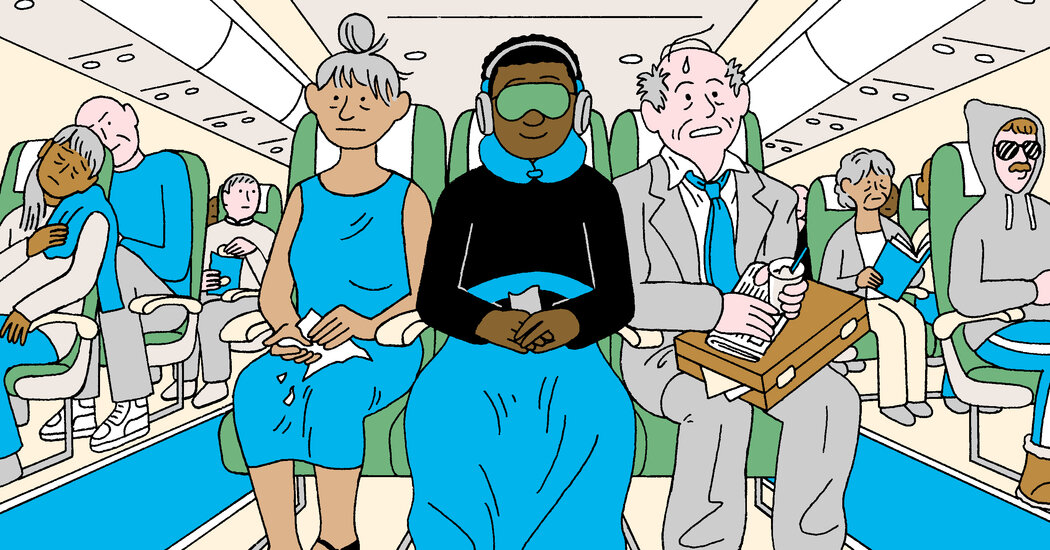These tested strategies can help you get some degree of rest, even in an unforgiving upright seat.
What’s worse than being crammed in a too tight, too upright seat on an overnight flight? Being wide-awake the entire time. Short of receiving a golden ticket (i.e., an upgrade to a lay-flat pod), there are some strategies for making a long flight more restful so you won’t arrive feeling totally wrecked.
Show up somewhat sleep deprived.
Most red-eyes involve traveling west to east over multiple time zones and trying to fall asleep earlier than you normally would at home. “Being a bit sleep deprived when you get on the plane can be beneficial,” said Jamie Zeitzer, co-director of the Center for Sleep and Circadian Sciences at Stanford University. Try to stay up a little later than usual the night before the flight and get up extra early the morning of. If you’re tired when you board, he said, “it might outweigh the fact that you’re uncomfortable and trying to fall asleep at a weird time.”
Skip the onboard meals.
“We sleep better if we don’t eat right before we go to sleep,” said Dr. Virginia Skiba, associate medical director of the Henry Ford Medical Group Sleep Laboratories in Michigan. “Eating a light, non-greasy meal a couple hours before the flight is your best choice.”
Kristin Luna, a Tennessee-based travel writer who has been to more than 130 countries, said she always eats a meal at home or at the airport before departure, and she packs snacks (like nuts or Kind bars) to eat before landing. “Given the option between an extra hour of sleep or waking up for the cabin breakfast service, I choose sleep every time,” she said.
Trick yourself into sleep mode.
When you board, make the mental switch to your destination’s time zone. If you’re leaving New York and heading to Paris, it’s not 6 p.m. when you take off, it’s midnight.
Next, start your bedtime routine. “Translate as many of your calming nighttime rituals from home to the plane as you can,” said Dr. Oren Cohen, an assistant professor of sleep medicine at the Icahn School of Medicine at Mount Sinai. “Your brain likes those associations to help lull you into sleep.” That can include switching off all your screens, brushing your teeth and taking out your contact lenses.
